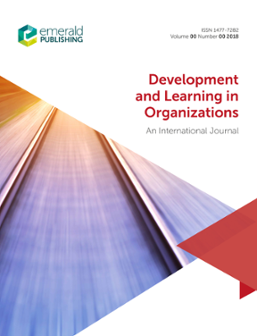Development and Learning in Organizations: Volume 33 Issue 4
Strapline:
An International JournalTable of contents - Special Issue: Neuroscience: how it should be impacting your organizational learning and development
Neuro-what? Which neuroscience products should you take seriously?
Michael MerzenichDiscovery in the field of neuroscience is rapid and keeping pace can be overwhelming. This paper aims to summarize the history of how the field has developed and provides seven…
Making organizational change happen – Does what we now know from neuroscience have any impact?
Gary LuffmanThe purpose of this paper is to highlight how developments in neuroscience can positively impact the likelihood of successfully implementing change in organizations.
Implications for human resource management practice: using a neuroscientific lens
Poornima Sehrawat, Rajasshrie PillaiThe purpose of this study is to understand the importance of neuroscience for human resource management (HRM).
How can neuroscience inform our coaching practice -- six strategies to facilitate an optimal brain state in coachees
Rachel BamberHow do you ensure that your coachees are getting the most value, support, and challenge from your coaching sessions? Before you even start asking questions and engaging in a…
Stemming the tide of work-related stress: it’s not rocket science, it’s neuroscience
Maria Alexis ChaseThis paper aims to illuminate how the findings from neuroscience, translate into simple, elegant, and easily applied tools which offer highly effective strategies to help stem the…
Inclusion: how an understanding of neuroscience enhances your gender initiatives
Jan HillsThe author recently conducted a research with companies about their gender diversity and inclusion initiatives to understand how successfully “lighthouse” organizations were…
Intentional consequences: Identifying a more effective path for leadership development
This paper aims to review the latest management developments across the globe and pinpoint practical implications from cutting-edge research and case studies.
Going back to school: Using science to rethink recruitment, learning and development
This paper aims to review the latest management developments across the globe and pinpoint practical implications from cutting-edge research and case studies.
From the mouths of babes: How understanding immature decision-making can benefit leadership
This paper aims to review the latest management developments across the globe and pinpoint practical implications from cutting-edge research and case studies.
By the seat of your pants: Experiential learning and leadership
This paper aims to review the latest management developments across the globe and pinpoints practical implications from cutting-edge research and case studies.
What does change look like?: The impact of formal diversity training on mentor awareness and behavior
This paper aims to review the latest management developments across the globe and pinpoint practical implications from cutting-edge research and case studies.
The neuroscience of compassion: How compassionate micro skills can build psychological safety for effective group work
This paper aims to review the latest management developments across the globe and pinpoint practical implications from cutting-edge research and case studies.
Reflecting on how we learn: Understanding how cognition, conation, and affection interact during the entrepreneurial learning process
This paper aims to review the latest management developments across the globe and pinpoint practical implications from cutting-edge research and case studies.

ISSN:
1477-7282Renamed from:
Training Strategies for TomorrowOnline date, start – end:
2003Copyright Holder:
Emerald Publishing LimitedOpen Access:
hybridEditor:
- Anne Gimson